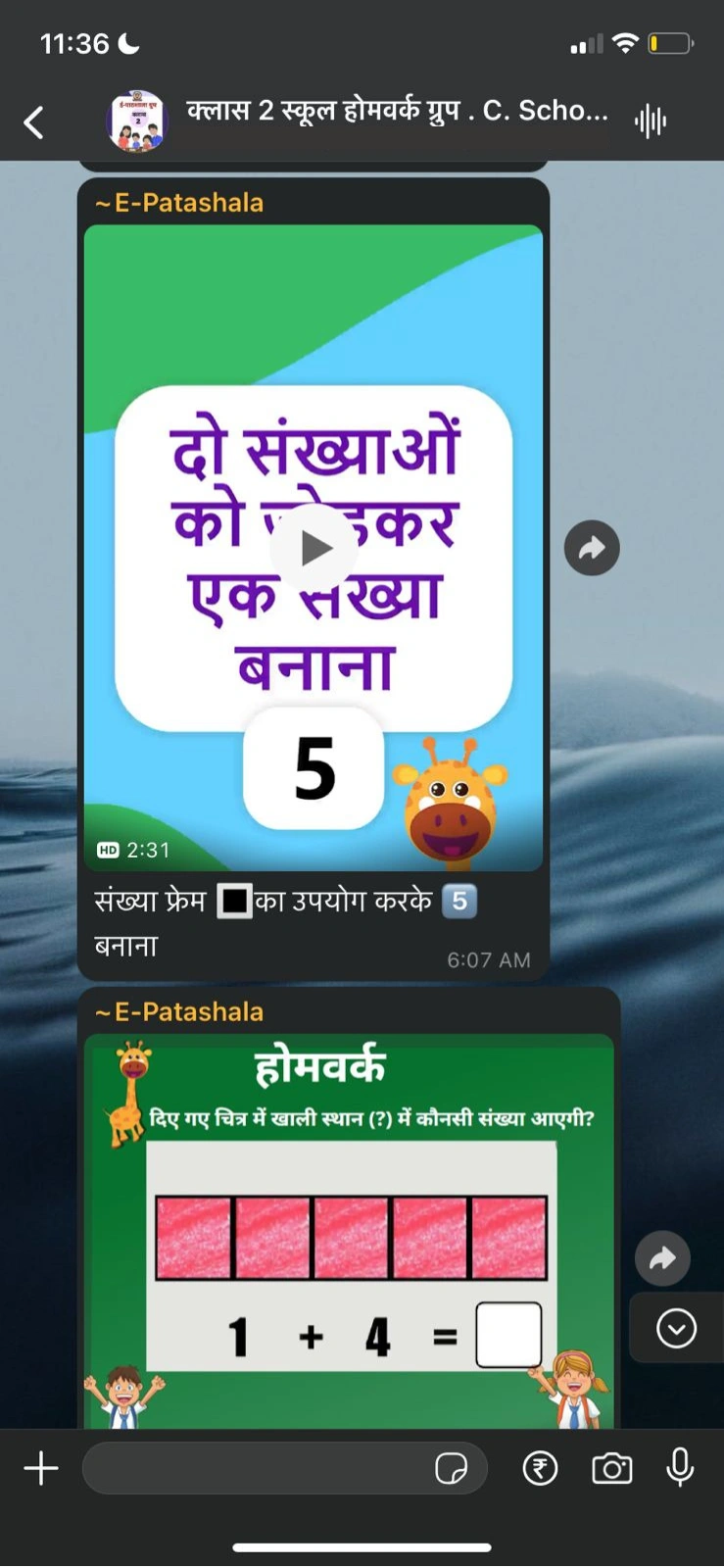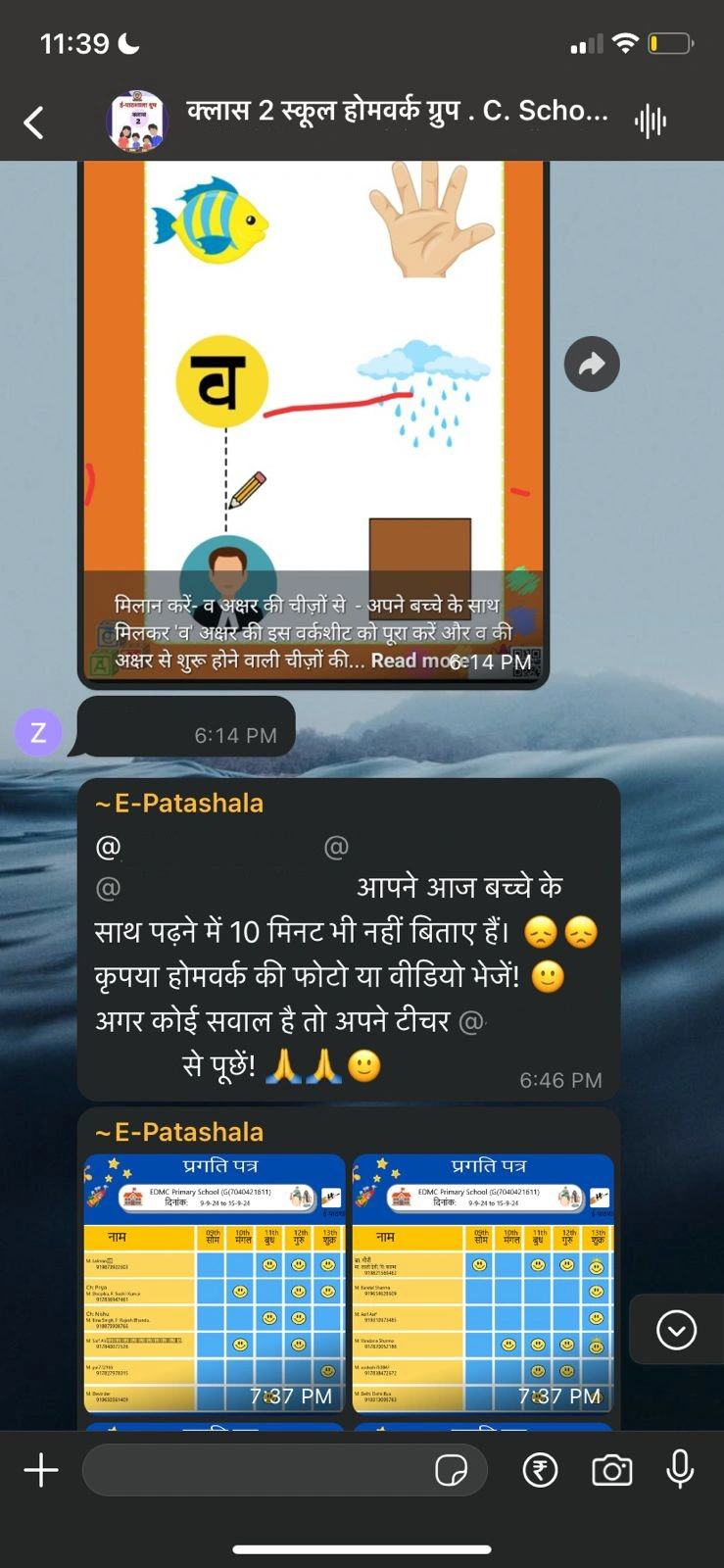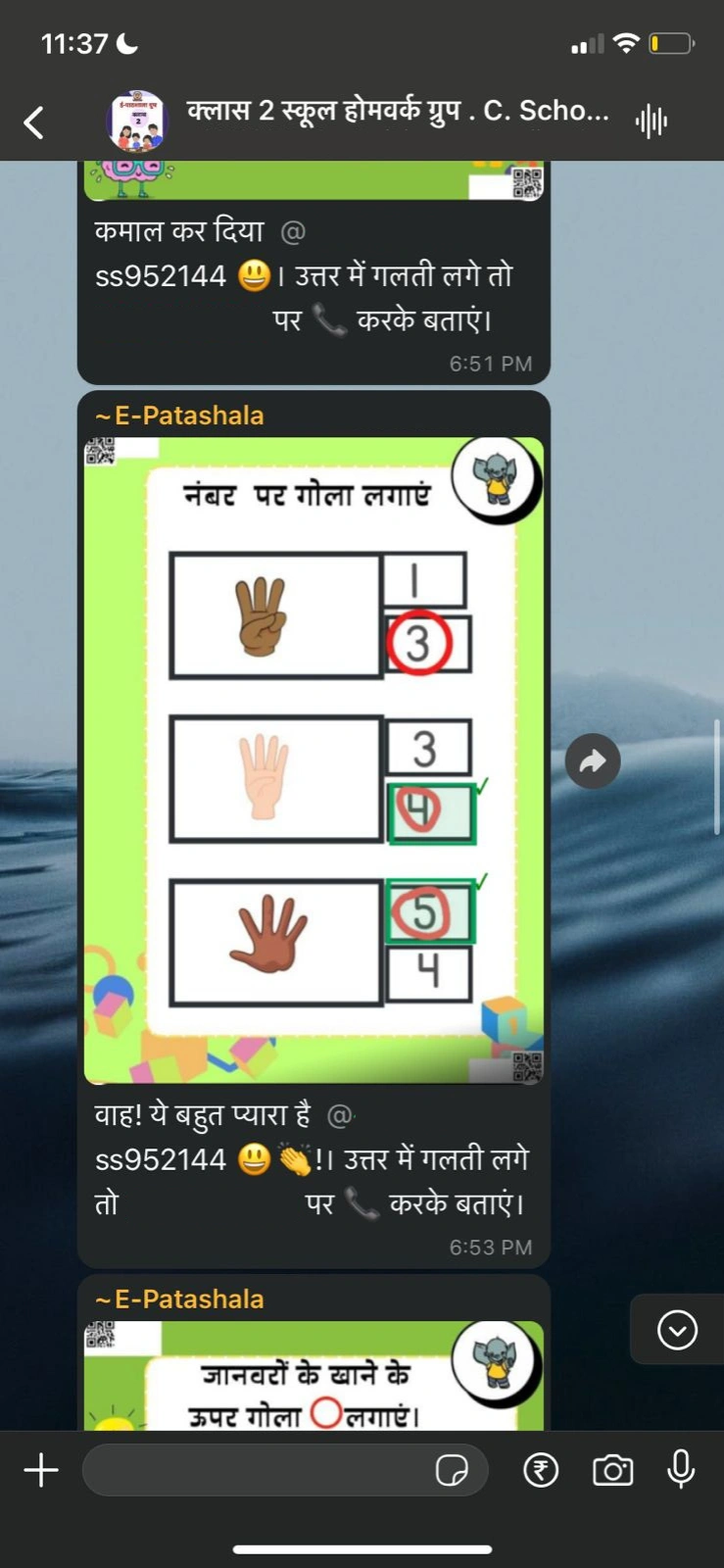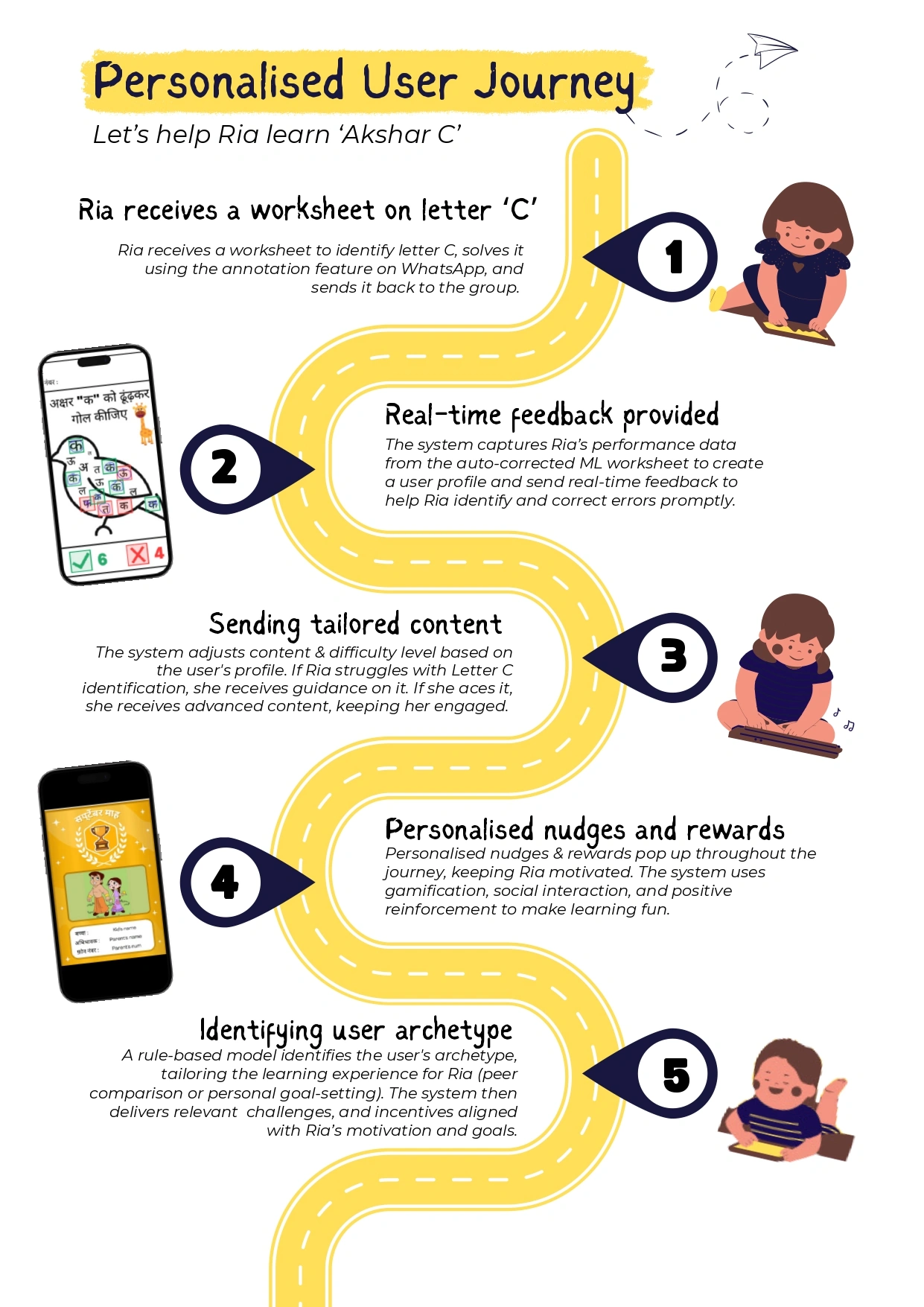
Share
Personalised Learning at Scale: Rocket Learning’s AI-Powered Approach to Foundational Learning
By Amola Mehta, Shayadri Singh and Utsav Kheria
Oct 1, 2024
Rocket Learning (RL) is a pioneering non-profit which began in 2020 with a mission to transform early childhood education in India to help all children reach their full potential. Through low-cost and scalable technology, play-based learning content, and behavioural change techniques, RL aims to ensure that children aged 3 to 8 receive developmentally appropriate education and build strong foundations for learning. RL is a critical partner on the LiftEd EdTech Accelerator portfolio which is supported by the Michael and Susan Dell Foundation, Reliance Foundation, UBS Optimus Foundation and USAID as Founding Partners, the British Asian Trust as the Programme Leader and Central Square Foundation (CSF) as the Design and Technical Partner. The LiftEd EdTech Accelerator aims to significantly shape the future of tech-based learning at home for foundational literacy and numeracy (FLN) in India. This blog traces RL's journey of creating accessible educational content, from inception to scaling through automation and artificial intelligence (AI) led innovations.
The Four-year Leap: Rocket Learning’s Growth in Redefining Education at Scale
Over 17.5 crore children globally lack access to pre-primary education, with over 3.7 crore in India alone. We have seen that the lack of access to high-quality early childhood education (ECE) has significant impact on school readiness in India wherein by Grade 1, 42.7% of children cannot recognise letters of the English alphabet and 35% cannot recognise numbers 1 to 9. Research also shows that 85% of brain development takes place before the age of 6, making early childhood education and developing the foundational learning skills crucial for long-term success of a child. Children who receive quality education for Foundational Literacy and Numeracy (FLN) during this age window are more likely to complete school and research shows that greater parental involvement in a child’s learning leads to improved academic performance. Students with these learning environments grow to be better equipped to access more opportunities throughout their lives, making this a critical problem to solve.
Rocket Learning launched in 2020 with the mission to ensure that every child, regardless of their socio-economic background, receives quality early childhood education, laying an equal and strong foundation for lifelong success. Their model leverages the ubiquity of smartphones and WhatsApp in India and taps into the Anganwadi system, one of the largest networks of free and government-subsidised daycares, and the primary school system to deliver educational content and learning resources to teachers, parents and children.
Rocket Learning’s model marries a highly intelligent backend technology, an accessible frontend interface on WhatsApp, with innovative social influences to connect the government education system with parents and communities. Rocket Learning delivers bite-sized play-based learning content in regional languages, like Hindi, Marathi and Punjabi, on WhatsApp groups of parents whose children attend government schools. These learning activities shared by Rocket Learning take less than 20 minutes to complete and use commonly available household materials, enabling parents to support their children through their learning journey. Parents and educators are then encouraged to share back images and videos on the WhatsApp groups, a strategy that creates strong peer accountability and a social pull. This drives continued participation in learning, as well as a growing sense of responsibility for their children’s learning.

The Rocket Learning intervention also has a sophisticated AI-powered backend that tracks incoming messages from parents reliably and draws nuanced insights, such as the efficacy of engagement nudges, while also conducting A/B tests for different features and content to understand and analyse what works.
Rocket Learning’s Journey So Far
Rocket Learning set out on a journey to leverage the power of engaged caregivers and community workers by empowering them with the right tools to support their children’s development. By supporting low-income communities who may not otherwise have the learning tools or training to engage in learning activities with their children, Rocket Learning enables children to become curious and joyous learners in the comfort of their own homes. In this, they found vision alignment with Central Square Foundation (CSF), making them one of Rocket Learning’s earliest funders. In partnership with CSF, Rocket Learning has innovated, scaled and deepened their impact since 2020, contributing to the FLN journey of more than 30 lakh children, training over 200,000 Anganwadi Workers (AWWs) and FLN Grade Teachers combined, across 10 states in India.
Rocket Learning has also conducted research to learn more deeply about their model and have seen that students in their programmes reach the top third of their class, with parents spending 2x more time on their child’s learning journey. In 2021, Rocket Learning was 1 of 7 global solutions that was selected for the MIT Solve Global Challenge – which sought technology based solutions ensuring access to quality, safe and equitable learning environments. They were able to work with a community of experts, mentors and peers to iterate their product. Subsequently in 2023, Rocket Learning became 1 of the 15 AI-driven solutions to be supported by Google’s AI for Global Goals Grant and was granted $1.5 million to increase education opportunities and improve learning outcomes for children across India. The grant aims to fund AI projects for social impact across the 17 Sustainable Development Goals (SDGs) to enable recipients to reach their goals.
Building Robust Engagement Mechanisms to Deliver Learning at Home
While Rocket Learning’s simple, low-cost and scalable technology and government partnerships helped them scale impact, they wanted to focus on maintaining high levels of user engagement to deepen their impact further. In 2023, Rocket Learning commenced on a journey as part of the LiftEd EdTech Accelerator, fuelled by a clear mission: to facilitate personalised learning for low-income children in India and reach them where they are, and to empower parents to support them in their learning journey, while sustaining their motivation to continuously engage. With a focus on leveraging AI/ML (Artificial Intelligence/Machine Learning) models on their user-friendly WhatsApp platform, Rocket Learning set out to personalise early learning experiences for their users and democratise access to feedback by developing the capability to automate worksheet correction, introducing learning games and the sending of real-time user-specific nudges in local languages and dialects to reward, drive engagement and build sustainable learning habits among low-income communities.
Rocket Learning conducted A/B tests to understand what kind of nudges work and which ones lead parents to engage more with the learning content. This led to the development and deployment of an AI powered personalised nudging framework, which shares personalised real-time nudges in local languages, based on a user’s observed behaviour to ensure they remain engaged. This not only increased user engagement time, but through the sharing of real-time appreciation of parents and children, this created momentum for a continuous cycle of learning and reinforcement.

To further deepen engagement and learning, Rocket Learning introduced Automatic Homework Grading, which utilises ML-based image recognition to automatically check homework sheets and provide real-time feedback and corrections to users. With more than 90% accuracy and the capacity to process more than 50,000 images per day, the Automatic Homework Grading infrastructure is built for scale.

Rocket Learning also collaborated with Rahul Kulkarni (Chief Technologist at Samagra, ex-Head of Product Management at Google) through the LiftEd EdTech Accelerator to shape and develop their gamification strategy – from refining one-on-one rewards for users to streamlining a comprehensive product roadmap for better engagement. As a result, if you are a parent in one of Rocket Learning’s digital classrooms, in addition to receiving short and engaging learning activities in the local language, you will receive real-time feedback on your completed activities in the form of virtual medals, stars, and smileys. This helps keep both the parent and child motivated, along with automated prompts for parents to engage with their child every day on their learning journey.

While the Accelerator’s first year has proven to be a pivotal stepping stone, bringing Rocket Learning closer to its goal of building a robust AI/ML system, their plans for the upcoming year are equally exciting.
Looking Ahead: RL’s Vision for Year 2 of the LiftEd EdTech Accelerator
In the coming year, Rocket Learning is focused on reinforcing personalisation of content and engagement features to reach 10 lakh children as part of the LiftEd EdTech Accelerator. Building on the success of their AI-driven engagement and learning tools, Rocket Learning is building user learning profiles to create personalised learning journeys for each child, to engage each of them individually and provide tailored content aligned with their learning level and needs. This will enable the platform to send personalised learning activities catering to the cognitive diversity of each child.

They have also been developing an AI-based model that identifies when parents are likely to become inactive and therefore sends them targeted nudges to sustain and revive their engagement. Furthermore, they have created an automated milestone-based journey, allowing users to unlock rewards upon reaching specific learning milestones to foster a sense of achievement and maintain a positive reinforcement loop.
Rocket Learning’s core belief is that it takes a village to raise a child and no child should be left behind due to a lack of resources and support systems. Partnerships such as the LiftEd EdTech Accelerator have provided them with strategic support and have been critical to their impact and growth, allowing them to aim to provide all learners with what many high-income children already have – a high-quality, super-smart and super-responsive coach to help them reach their full potential.
——————————————–
Keywords
Authored by

Amola Mehta

Shayadri Singh

Utsav Kheria
Share this on


